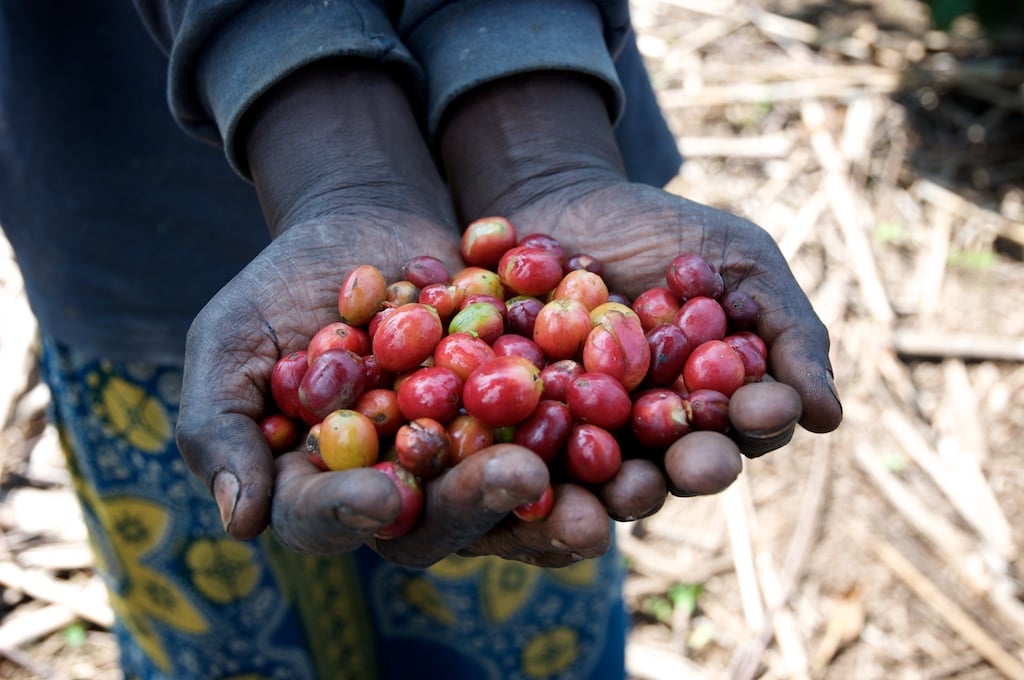
The Cyimbili Hills lie on the shores of Lake Kivu on the western coast of Rwanda. The hills are known for their tranquility and nature. The village is nestled neatly into the lush green mountains that surround it, and looks out on the water of Kivu, one of Africa’s gat lakes. They’re also known for their coffee production. Coffee is at the centre of nearly everything in Cyimbili – and it has been for a long time.
“The soil here is volcanic,” says Jean Nepo Ndacyayisenga, Director of the Cyimbili Coffee Plantation. “The soil has a rich composition favourable for Arabic coffee growing, and the altitude of the hills, between 1400m and 1600m, make it ideal for growing and harvesting coffee”.
In the heyday of the coffee plantation, before the Rwandan Genocide 30 years ago, there were 24,000 coffee plants. The jobs from the plantation sustained the nearby village in Cyimbili, and funded the local school, church and social services. The coffee plantation was at the very core of the village. The centre of the community.
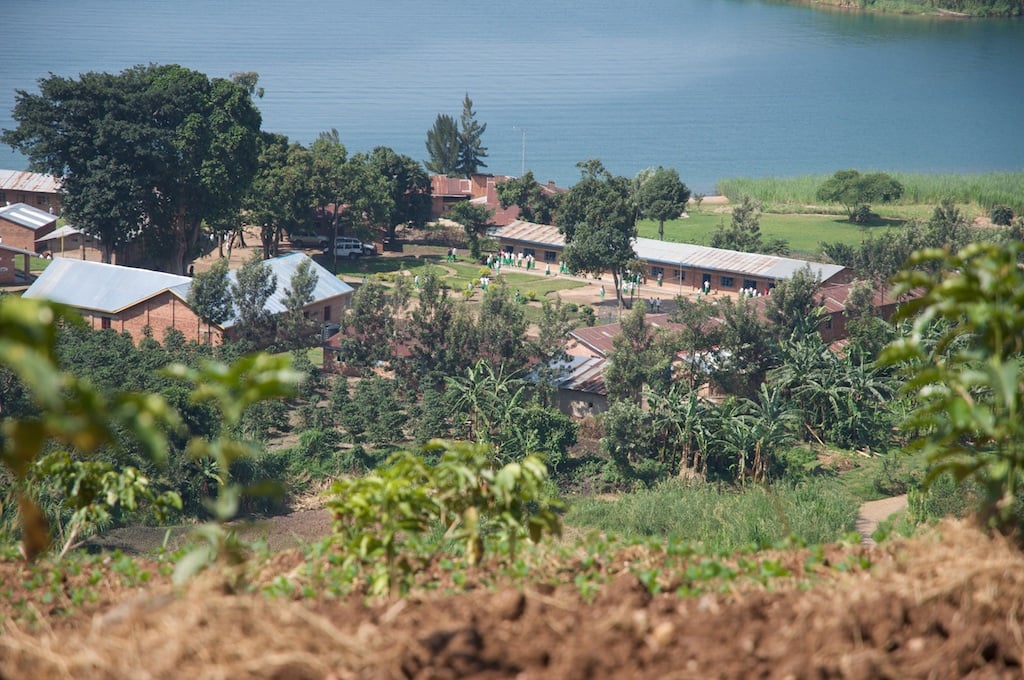
Then 1994 arrived, and life in the Cyimbili Hills, and across Rwanda, was turned upside down.
An estimated 800,000 people were killed over the course of 100 days during the Rwandan Genocide. Communities and villages were left broken and uninhabitable – including that of Cyimbili. The coffee plantation was destroyed. The community struggled to grow food, and found themselves without clean water, electricity, sanitation and shelter. Hope, they say, had vanished.
“It’s not easy to state the situation after the Genocide, because it didn’t take only lives, but everything,” says Jean Nepo. “Cyimbili Hills and the community were also destroyed. Coffee plantation trees were destroyed, infrastructures were damaged. People fled to different regions including to our surrounding countries.”
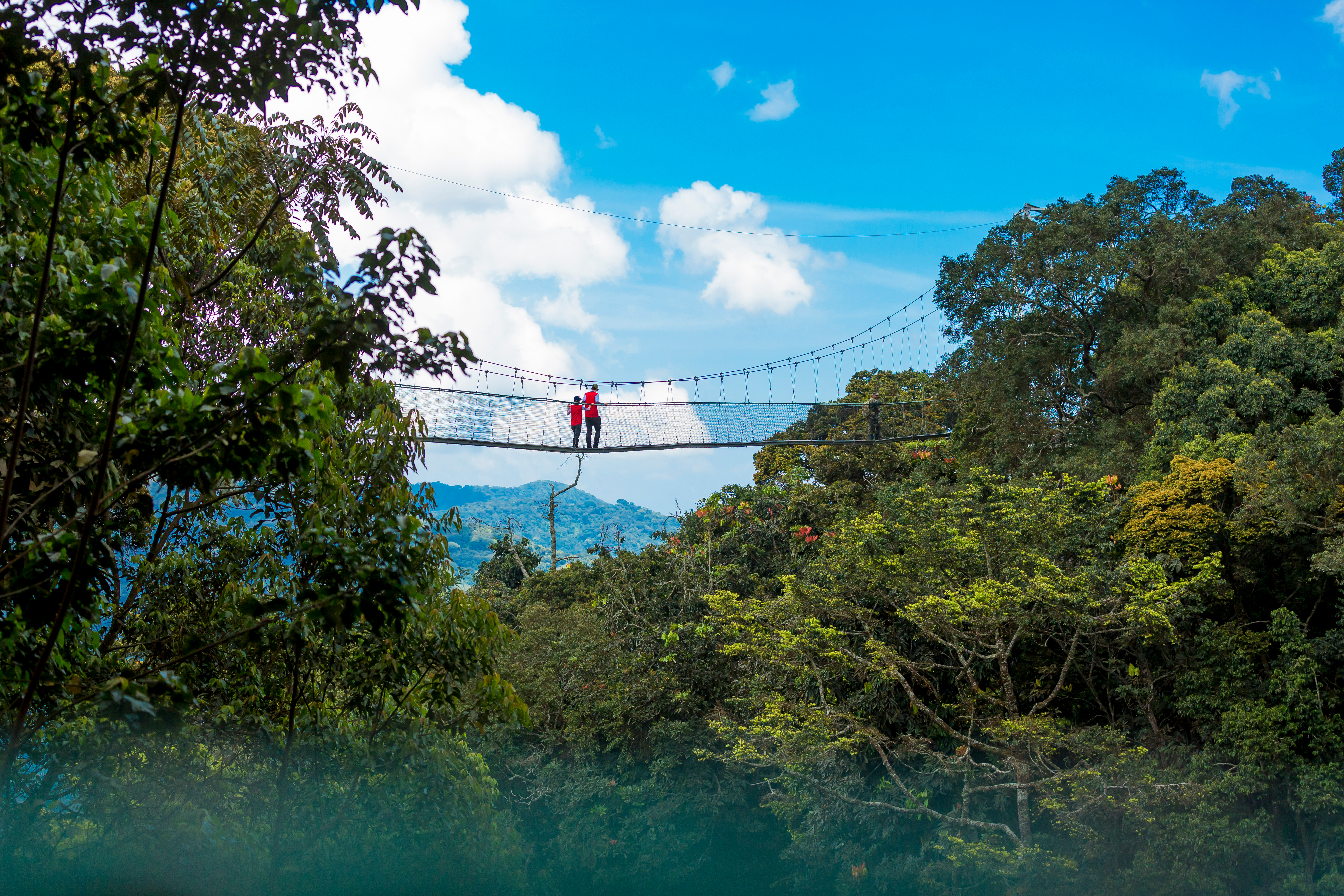
The coffee plantation was left more or less abandoned for the best part of 14 years, and as such, what community remained in the area had no benefit from it.
“You can imagine how trees looked when nobody was working on the plantation,” says Jean Nepo.
Then, in 2008, coffee, and community, made a return to the hills of Cyimbili. This was thanks to ALARM, the African Leadership and Reconciliation Ministries. ALARM was founded after the Genocide in 1994, with the aim of developing leaders ”who reconcile and transform lives affected by conflict and injustice”. Crucially, it was founded by Dr. Célestin Musekura, who grew up in the Cyimbili Hills and was educated at the school funded by the coffee plantation. Dr. Musekura believed that by restoring the plantation, they could rejuvenate the area.
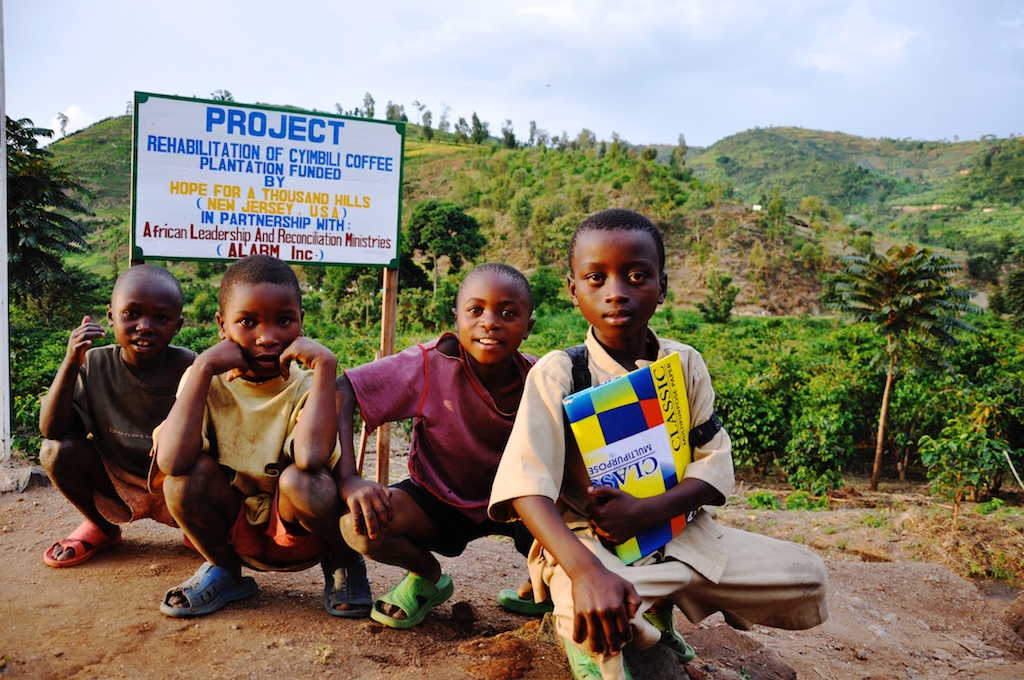
“It was sad for Dr. Célestin to see the plantation destroyed and no longer benefiting the community, as it used to before the Genocide,” says Jean Nepo.
ALARM, in partnership with the Association of Baptist Churches in Rwanda and Hope for a Thousand Hills, arrived with a clear plan. They began by rehabilitating the land – planting trees, hiring and training staff, connecting pastors in the area, constructing the physical plantation and infrastructure required, like hydroelectric turbines and sewage, and in essence, setting everything in place for the plantation. Then, with the plantation once again ready to sustain a village, they would bring back the community around it.
“There wasn’t a community in the way it would usually be defined at that time,” says Jean Nepo. “People were isolated from one another, suffering from genocide trauma. They could not work together or pray together. The poverty was high.
“After ALARM came back, people started to work together in the plantation, and they started to pray together. After many conferences on trauma healing and forgiveness, leadership and community transformation… the community changed. It transformed.”
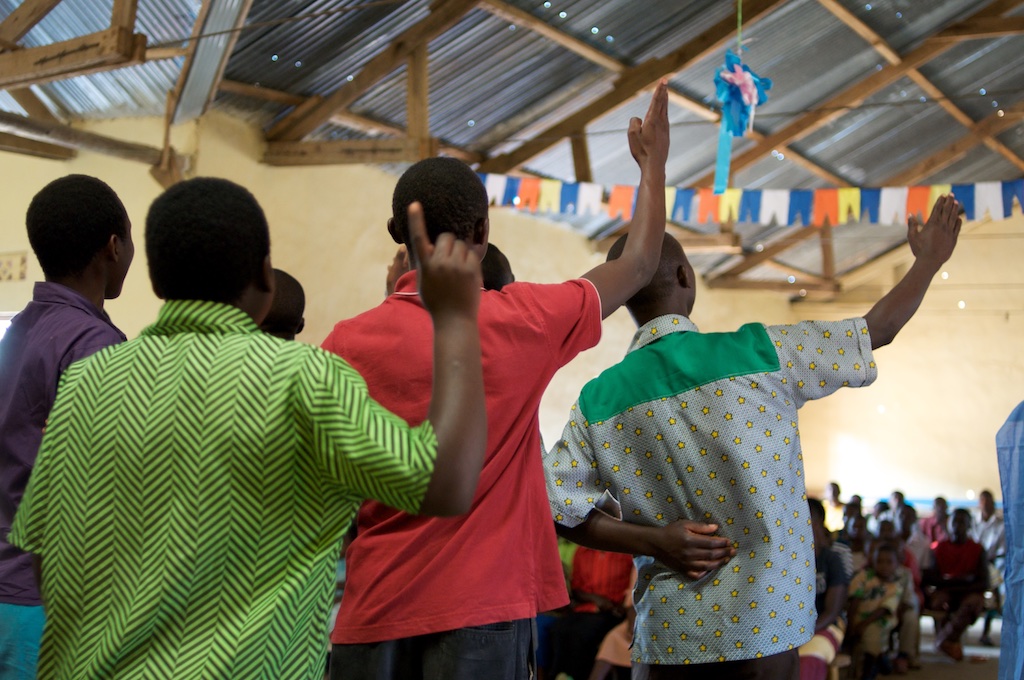
The Cyimbili Coffee Plantation now has 150 workers in harvest season. There are over 40,000 coffee trees in the hills. 928 pounds of ripe cherries are picked per day. 97 pounds of dried coffee is produced each day. There’s a new medical clinic, a school, a church and two water wells on site. The coffee is already high quality, and even being exported in partnership with U.S specialty coffee roaster Eiland Coffee Roasters in Dallas, Texas.
Just over 10 years ago, such community and sustainability in Cyimbili would have seemed unfathomable.
“After the genocide people were hopeless,” says Jean Nepo. “Many people were coming back from refugee camps with nothing; others traumatised by what happened to their families and with no hope for their future.
“ALARM wanted to bring hope to this community through the Cyimbili Coffee Plantation, where different people could gather together, work together, share their burdens, pray together and go through the trauma healing process, forgiveness process and become economically empowered together.
“All these things were only possible because of Cyimbili Coffee Plantation.”
In Kigali, the capital of Rwanda, a three and a half hour drive from the Cyimbili Hills, the positive impact of the coffee bean continues to be seen. Here, in the centre of the country, the seeds are sown to help female farmers all over Rwanda.
Question Coffee is, to the naked eye, a traditional hipster coffee shop. It’s the only specialty coffee shop and small-batch roastery in Kigali, and it wouldn’t look out of place in Shoreditch, London. But the sign near the entrance at ‘KG 8 Avenue’ tells a deeper story. It reads: “powered by 30,000 Rwandan women coffee farmers.”
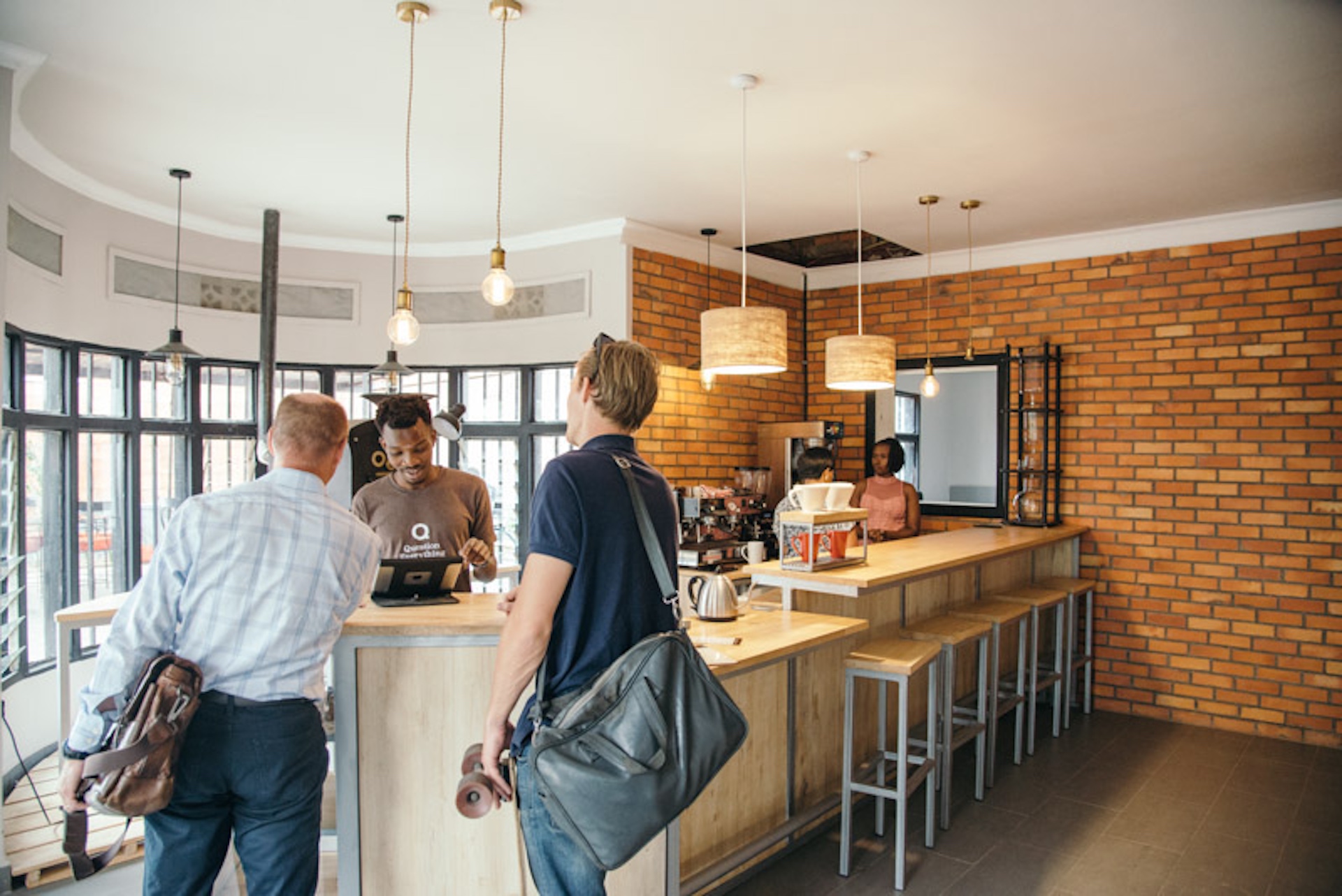
Question is a social enterprise founded by NGO Sustainable Growers Rwanda, and the model is pretty simple. Question Coffee sells the eponymous drink. The proceeds are reinvested into training women farmers across Rwanda, which leads to a higher quality of coffee production, which in turn, then improves the cup sold at Question Coffee. It also earns farmers a better price for their coffee, and improves livelihoods along the way.
“We work with over 30,000 women in the coffee industry and help train them in the best agricultural techniques in the farms,” says Sylvere Mwizerwa, Deputy Director of Social Enterprise at Sustainable Growers Rwanda. “Then we link these women with the international coffee roasters as much as possible, to cut out the middle man [so they get a better price].”
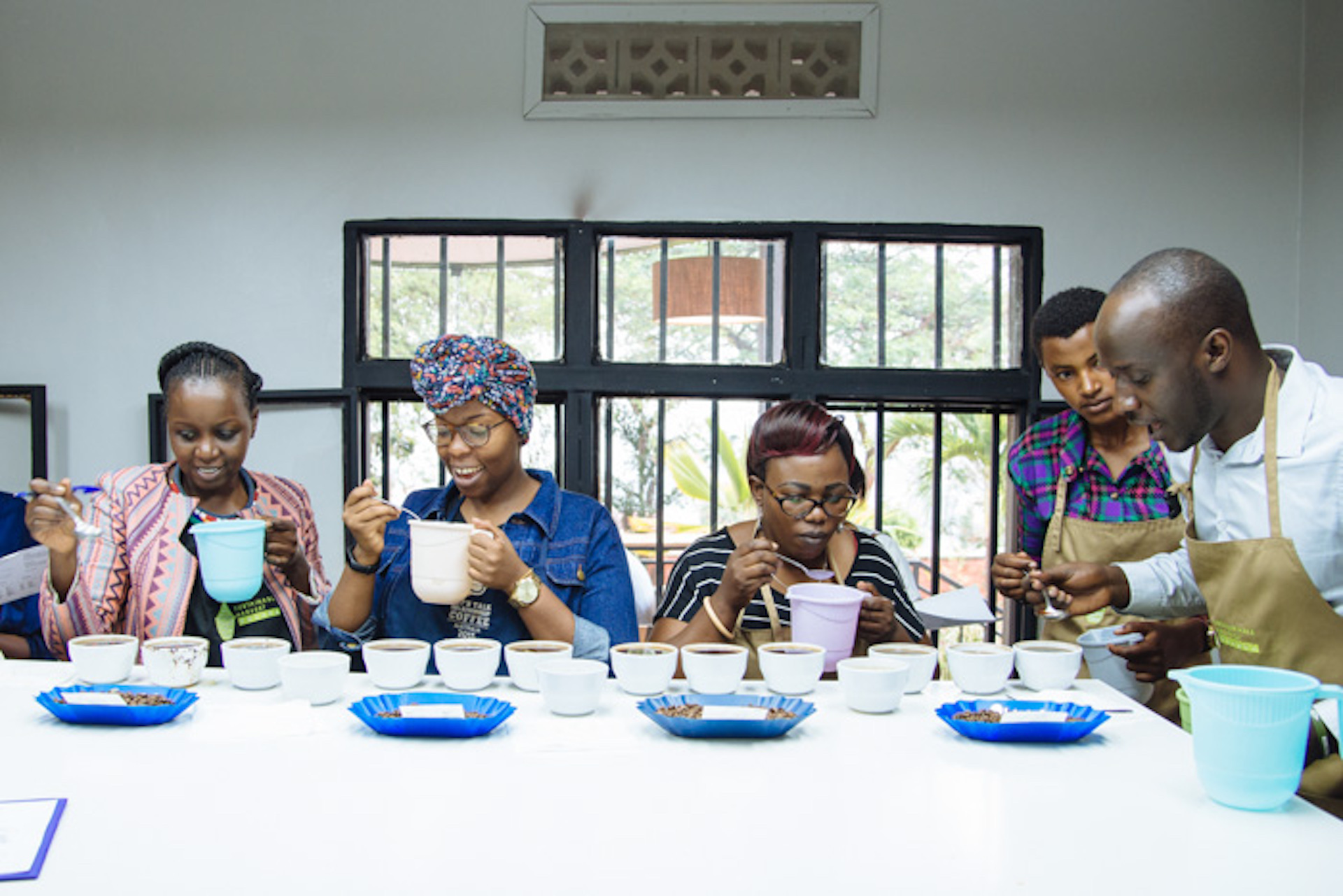
Why does their work focus on women in particular, I ask?
“Promoting women is one of the biggest successes Rwanda has had in the past 25 years,” says Sylvere. “Investing in women has shown a great impact on families. Women are the backbone of the families, and when you invest in women you are investing in the entire family. So if you strengthen them professionally through the coffee business, you help each of these 30,000 families to prosper. That’s at the core of it.”
The training process sees Sustainable Growers break Rwanda down into provinces and districts. District coordinators, who are professionals in their field, train influential leaders in communities across the country, and these women then go back to their neighbours to train them to work in the coffee industry.
“Every tree has jumped from one and a half kilogram of cherries to three kilograms,” says Sylvere, “We’ve doubled production for the women since we started doing these field trainings. So we’re very proud of that.”
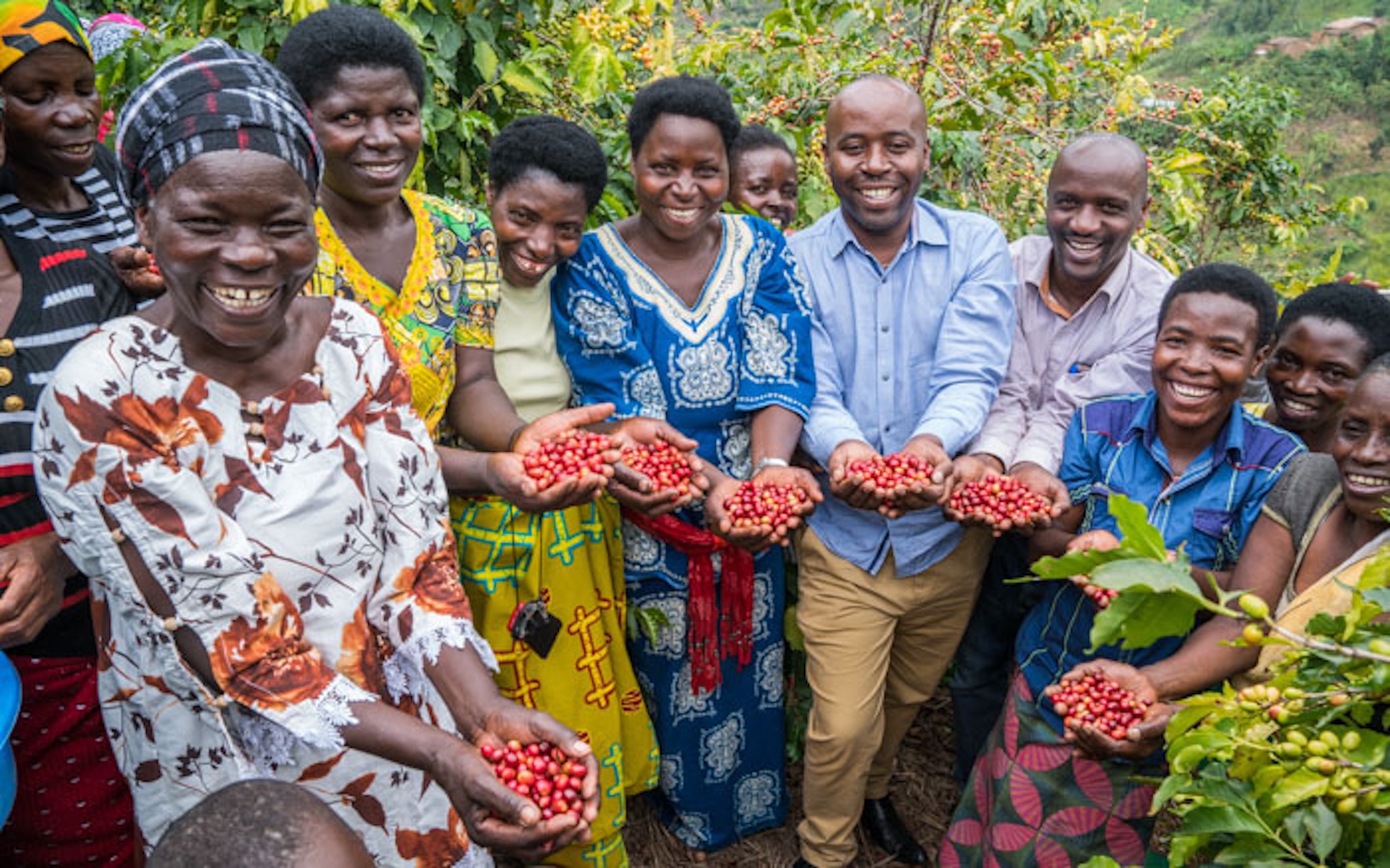
Sylvere describes some success stories from their programmes to me. That of Agnes, a farmer from Eastern Province who couldn’t negotiate the price on her sales because she didn’t used to know how her coffee tasted. Sustainable Grower’s programme had a coffee lab built in the province, in the Kayonza district, and now every coffee is carefully tested and tasted before it gets to market. At the same co-op, through steady progression, they have now produced a coffee which has been ranked 30th in the entire world by Coffee Review.
The work doesn’t stop when the coffee reaches the cup in Question Coffee, either.
“There’s also a barista school which trains over 200 baristas in the city to increase coffee consumption standards,” says Sylvere. “And every single brewer; cafe or service providing coffee is following our lead in terms of professionalism; from the baristas to high speciality coffee beans and equipment.”
Smayah Uwajeneza trained at Question Coffee, and is now a Senior Barista there. She’s also a former East African Aeropress champion, and is currently studying law at Kigali University’s Law Department, with the aim of becoming a legal advisor to the coffee business and the first female roaster and quality controller in Rwanda.
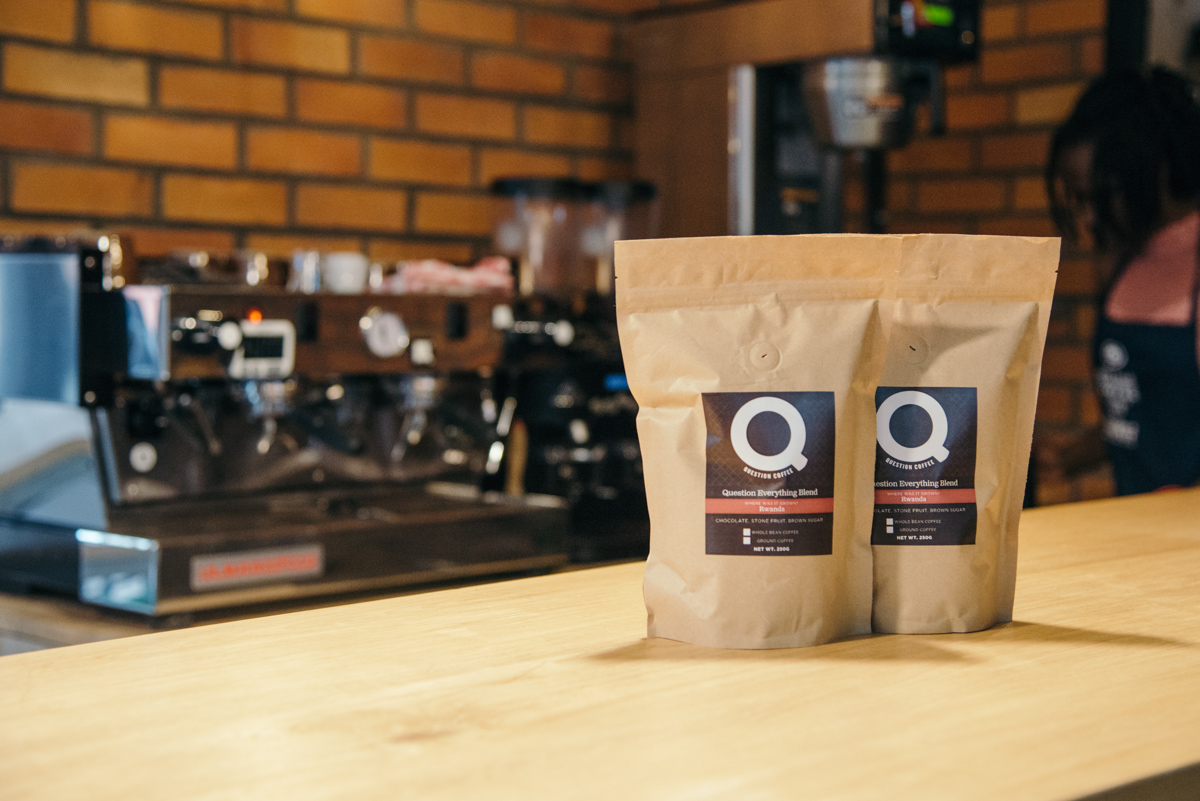
“Question Coffee has been a lead for the rest of the city to increase coffee consumption,” says Sylvere. “It’s not part of the Rwandan culture to drink coffee, but we can see that it’s coming. This is the place coffee lovers can go to chill out in the city.”
Question Coffee’s roast is also now served in major hotel chains such as the Mariot, in national parks and local restaurants, and by the national airline, Air Rwanda.
Back at the Cyimbili Coffee Plantation, there is a simple slogan. It asks: “Can a simple cup of coffee change lives?”. The answer follows: “Just look to the hills of Cyimbili. They are full of hope.”
There are more than 30,000 women farmers across Rwanda who would be very likely to agree that it can.
Inspired? Check out The Ultimate Adventure Through Rwanda.
About Sustainable Growers and Question Coffee: In 2013, Bloomberg Philanthropies and Sustainable Harvest®️ Coffee Importers partnered to create Sustainable Growers, a non-profit committed to transforming the lives of women coffee farmers from Rwanda and the Democratic Republic of Congo through training and access to international coffee buyers. Question Coffee was created by Sustainable Growers to provide a retail market outlet for the women’s coffee, a training space for farmers and coffee professionals, and a chance for visitors to discover some of the world’s best coffee.


